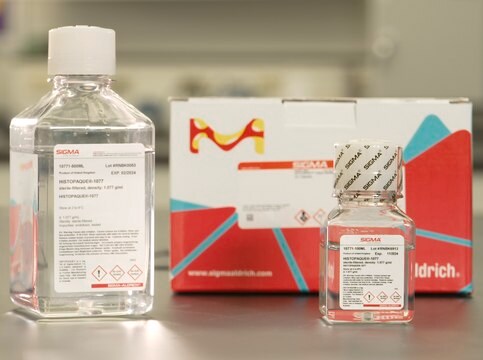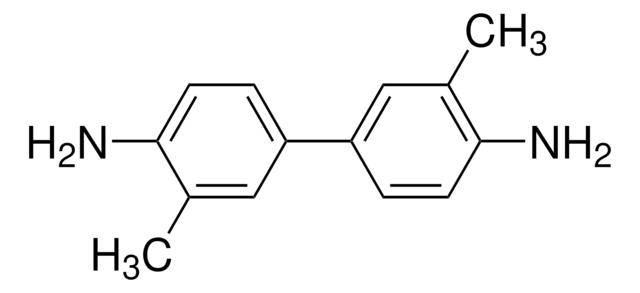All Photos(1)
About This Item
Linear Formula:
NaClO
CAS Number:
Molecular Weight:
74.44
EC Number:
MDL number:
UNSPSC Code:
12352300
PubChem Substance ID:
NACRES:
NA.55
form:
liquid
Recommended Products
vapor pressure
23.3 hPa ( 20 °C)
Quality Level
grade
purum
form
liquid
reaction suitability
reagent type: oxidant
concentration
~10% (RT)
pH
11.5-13.5
density
1.21-1.26 g/mL at 20 °C
storage temp.
2-8°C
SMILES string
[Na+].[O-]Cl
InChI
1S/ClO.Na/c1-2;/q-1;+1
InChI key
SUKJFIGYRHOWBL-UHFFFAOYSA-N
Looking for similar products? Visit Product Comparison Guide
Application
- Anodic destruction of 4-chlorophenol solution.: This article discusses the effectiveness of anodic oxidation in the decomposition of 4-chlorophenol solutions, providing a feasible method for treating wastewater containing chlorophenols and potentially reducing environmental hazards (Azzam et al., 2000).
Caution
store under +15°C; for quick use; product decomposes very quickly; specification on certificate of analysis applies for freshly tested material
Signal Word
Danger
Hazard Statements
Precautionary Statements
Hazard Classifications
Aquatic Acute 1 - Aquatic Chronic 2 - Eye Dam. 1 - Met. Corr. 1 - Skin Corr. 1B
Supplementary Hazards
Storage Class Code
8B - Non-combustible corrosive hazardous materials
WGK
WGK 2
Flash Point(F)
Not applicable
Flash Point(C)
Not applicable
Choose from one of the most recent versions:
Already Own This Product?
Find documentation for the products that you have recently purchased in the Document Library.
Christian Schmidt et al.
Frontiers in bioengineering and biotechnology, 8, 760-760 (2020-08-28)
Microphysiometry has proved to be a useful tool for monitoring the energy metabolism of living cells and their interactions with other cells. The technique has mainly been used for monitoring two-dimensional (2D) monolayers of cells. Recently, our group showed that
Joanna Jaskowiak et al.
International journal of molecular sciences, 20(12) (2019-06-27)
Aluminum (Al) is one of the most important crust elements causing reduced plant production in acidic soils. Barley (Hordeum vulgare L.) is considered to be one of the crops that is most sensitive to Al, and the root cell wall
Effects of the algicides CuSO4 and NaOCl on various physiological parameters in the harmful dinoflagellate Cochlodinium polykrikoides.
Ebenezer V, et al.
Journal of Applied Phycology, 26(6), 2357-2365 (2014)
In vivo evaluation of chlorhexidine gluconate solution and sodium hypochlorite solution as root canal irrigants.
A M Ringel et al.
Journal of endodontics, 8(5), 200-204 (1982-05-01)
B R Johnson et al.
Journal of endodontics, 19(1), 40-43 (1993-01-01)
Although the tissue solvent and bactericidal properties of sodium hypochlorite are well known, the effective shelf-life of prepared sodium hypochlorite solutions is not known. The stability of sodium hypochlorite is adversely affected by exposure to high temperature, light, air, and
Our team of scientists has experience in all areas of research including Life Science, Material Science, Chemical Synthesis, Chromatography, Analytical and many others.
Contact Technical Service










